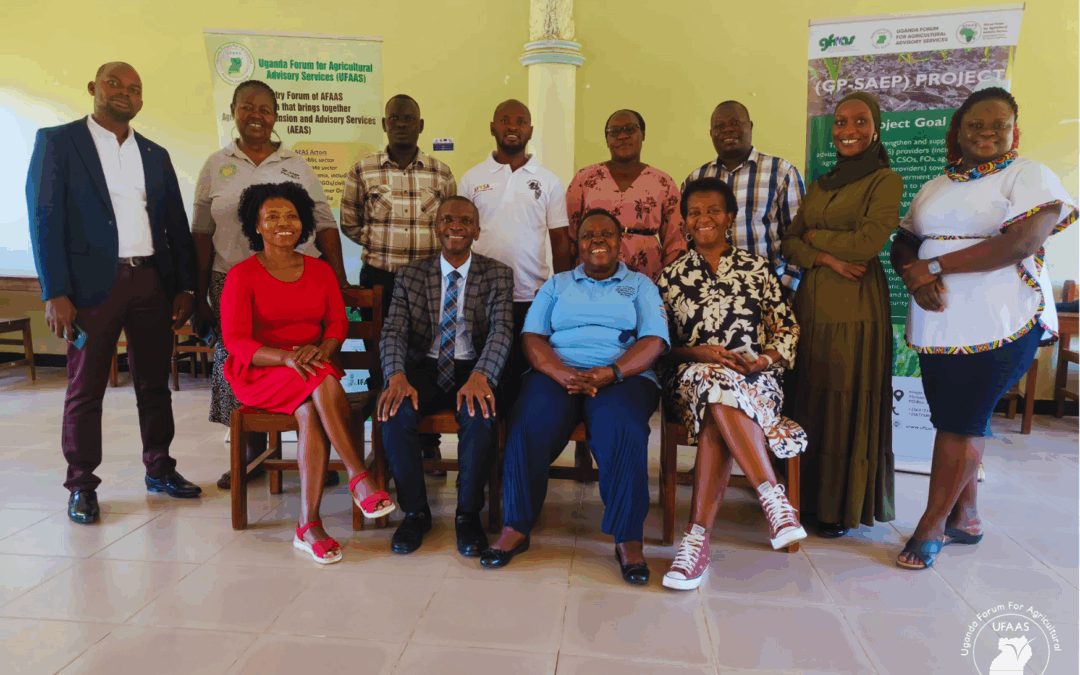The Uganda Forum for Agricultural Advisory Services (UFAAS) kicked off a week-long quarterly monitoring and learning event in Soroti, Eastern Uganda, as part of the Global Programme for Small-scale Agroecology Producers and Sustainable Food Systems Transformation (GP-SAEP) project. The opening event, held at Eneku Hotel, focuses on advancing agroecological practices, building team competencies, and fostering peer learning among participants. It was attended by key stakeholders, including representatives of the continental fora, the African Forum for Agricultural Advisory Services (AFAAS), the Global Forum for Rural Advisory Services (GFRAS), Access Agriculture, Rural Advisory Services Producer Organization FINASP, the UFAAS Board and Secretariat, and Project team members.
Dr. Richard Miiro, UFAAS Board Chair, opened the event, highlighting the importance of small-scale agroecology producers in shaping sustainable food systems. “GP-SAEP provides a platform for agricultural transformation across Uganda,” he said, urging Master Trainers to leverage the project for impactful results. He also urged Master Trainers to do their work professionally , noting that UFAAS strives to ensure that agricultural extension and advisory services (AEAS) across Uganda should be conducted in a professional manner. He appealed to all participants to prepare for the Uganda National Agricultural Extension Week 2025, due to take place in September.
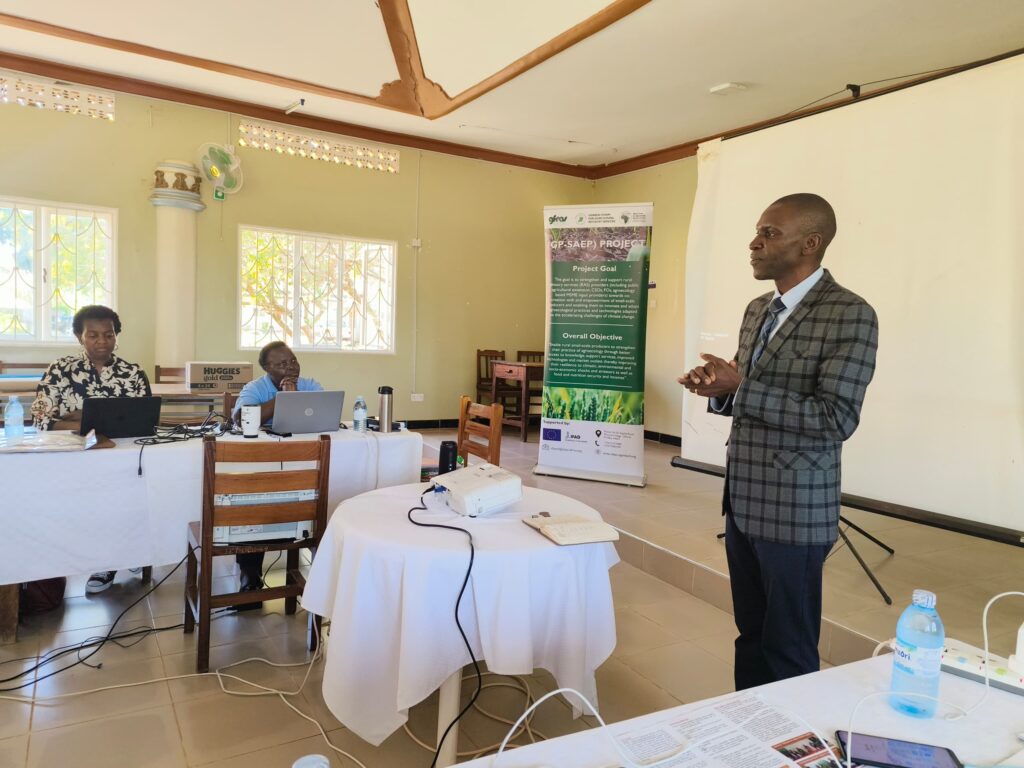
Dr Richard Miiro, UFAAS Board Chair
The workshop included insights from Dr. Hlami Ngwenya, the GPSAEP Regional Coordinator at the Global Forum for Agricultural Advisory Services (GFRAS), who emphasized the program’s focus on innovation, co-creation, and the six core competencies, namely, personal development, team development, facilitation and communication, agroecology technical competencies and digital tools, conceptual, organizational and methodological competency, and integrating digital tools.
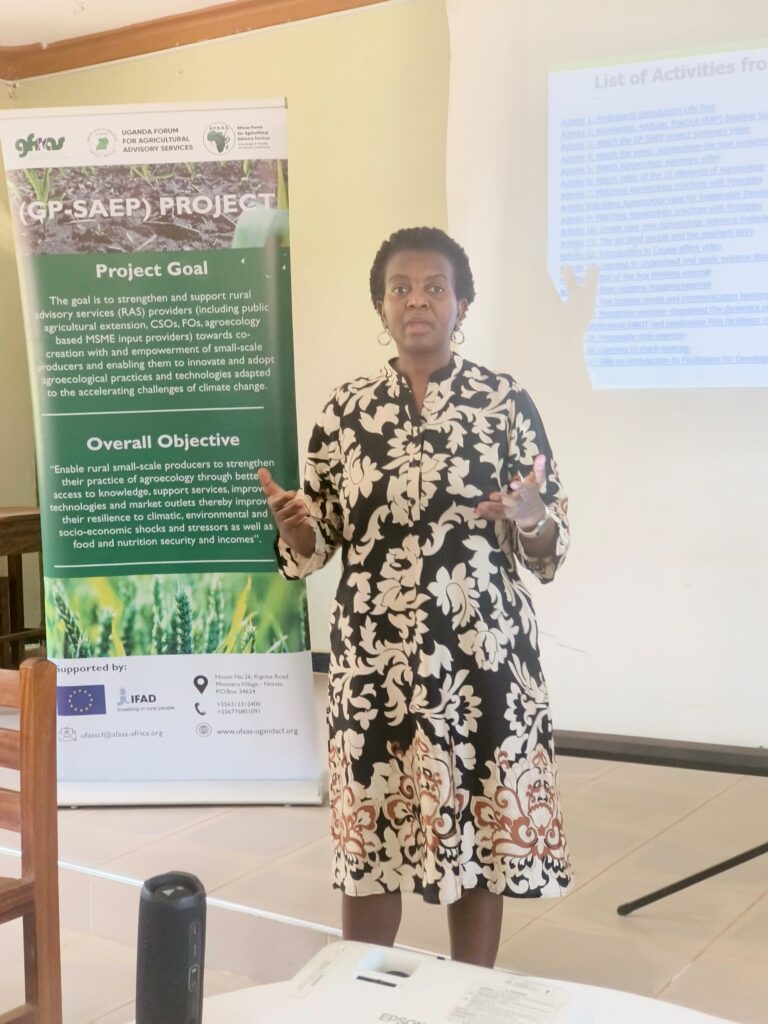
Dr Hlami Ngwenya, GPSAEP Project Coordinator, GFRAS
She praised the peer learning clusters for fostering collaboration and knowledge-sharing, noting that they create a “robust support system” for implementing teams. Dr Ngwenya called for continuous learning practice and monitoring, adding that “agroecology transition is fundamentally about change, starting with facilitators and extending to communities.” She introduced the New Extensionist Learning Kit (NELK), and asked participants to share it widely with extension workers to enable them to upgrade their skills in the delivery of agricultural extension that speaks to the recent times.
Participants engaged in activities such as reviewing progress in key competencies, sharing experiences with field teams, benchmarking agroecological practices, and planning upcoming activities. Ms. Lydia Adong, the host master trainer for Eastern Uganda, said that the project is implemented in collaboration with Facilitation for Innovations and Sustainable Productivity (FINASP), the Rural Advisory Service Provider Organization (RASPO), and utilizes the Farmers Family Learning Groups (FFLG) approach, supported by three peer learning teams in the sub-counties of Arapai, Asuret, and Lalle, in Soroti District. She said that the PLT was comprised of 10 agricultural professionals, including one master trainer, six Rural Advisory Service (RAS) facilitators, one YPARD fellow, and three Access Agriculture Entrepreneurs.
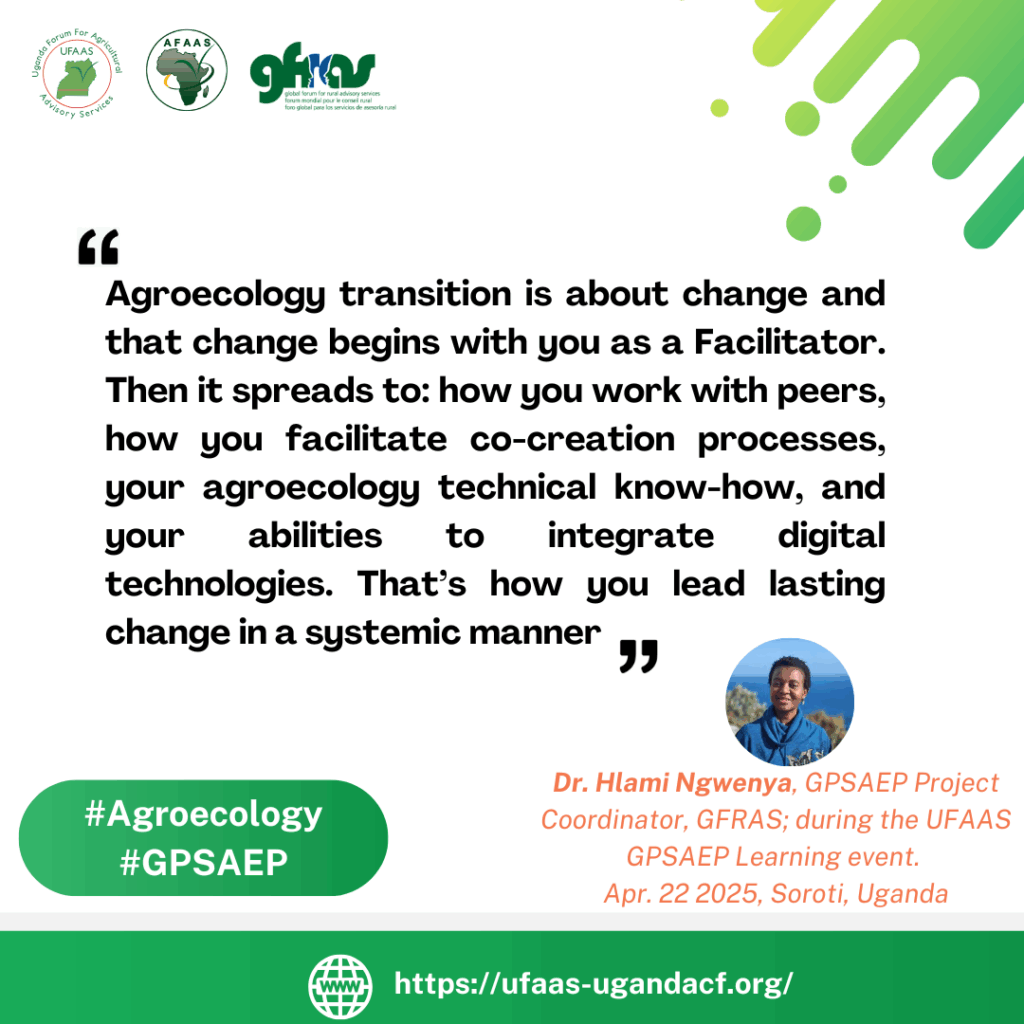
Dr. Rosemirta Birungi, the technical lead for Agricultural Extension and Advisory Services at AFAAS emphasised professionalisation of agricultural extension, and highlighted the urgent need for UFAAS’s readiness to serve as a model for accreditation and policy engagement. She stated that AEAS can be a golden bullet to change Africa’s Food system challenges.
Activity line-up
Key components of the week-long event include reflection on progress in the six competencies and addressing gaps; introducing New Extensionist Learning Kit (NELK); developing baseline survey information; planning activities; visits and interaction with key partners such as the Soroti and Buikwe District Local Government, NARO’s National Semi-Arid Resources Research Institute (NaSARRI) , RASPO, and farmers; experience sharing; and team building activities.
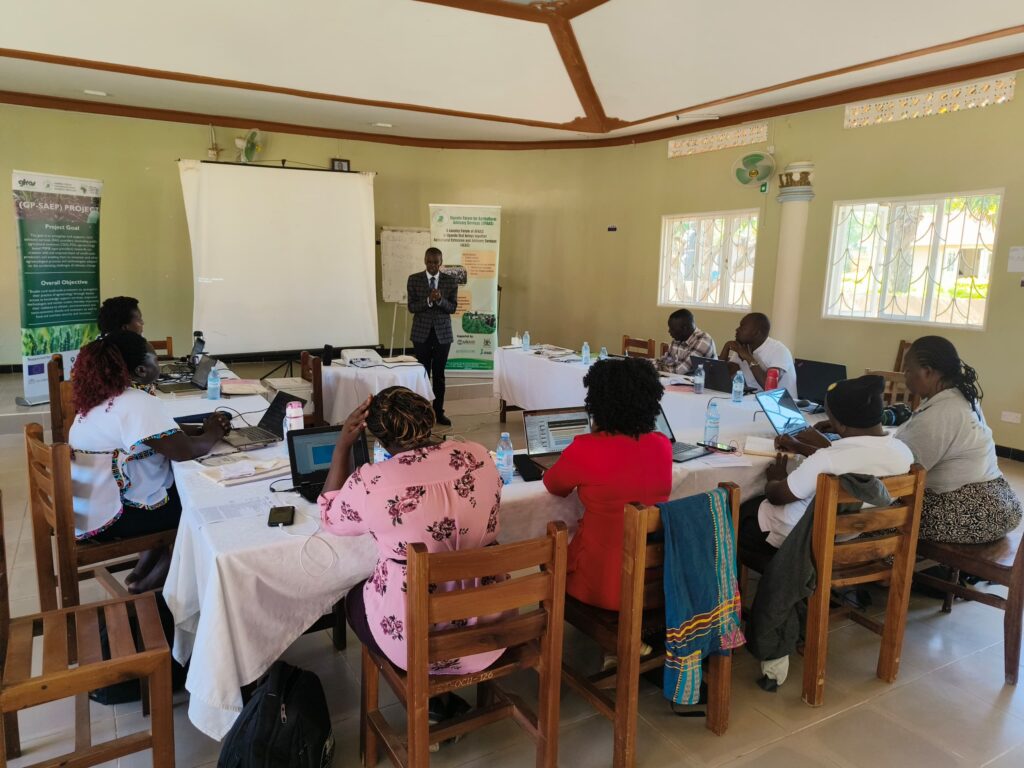
Compiled by Elizabeth Asiimwe
For more details, please contact Mrs Beatrice Luzobe, UFAAS CEO on ufaas2013@gmail.com

